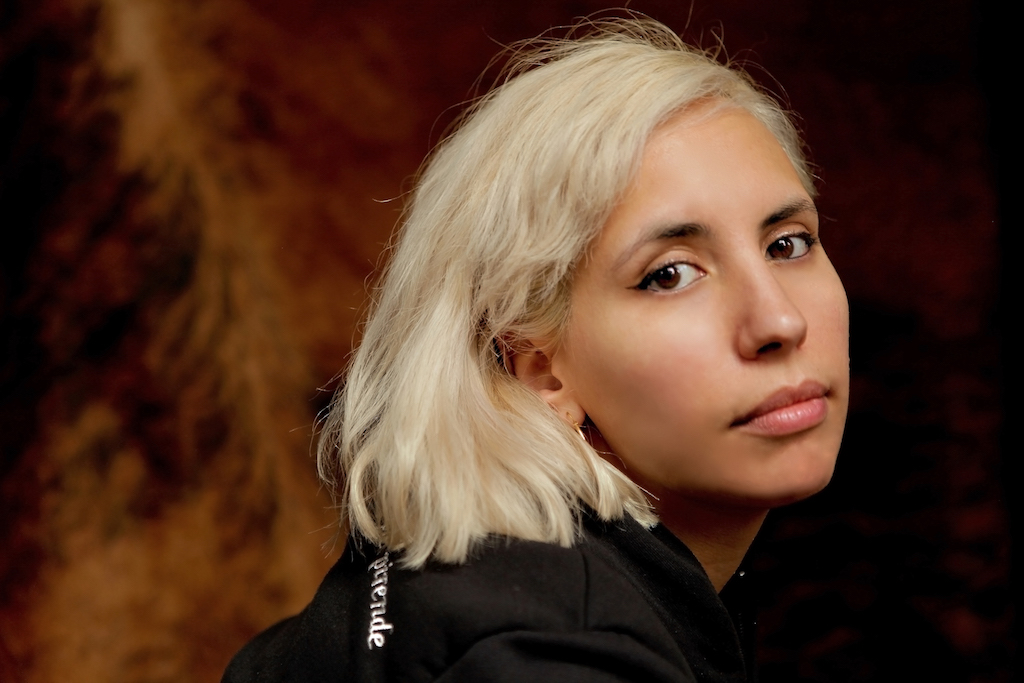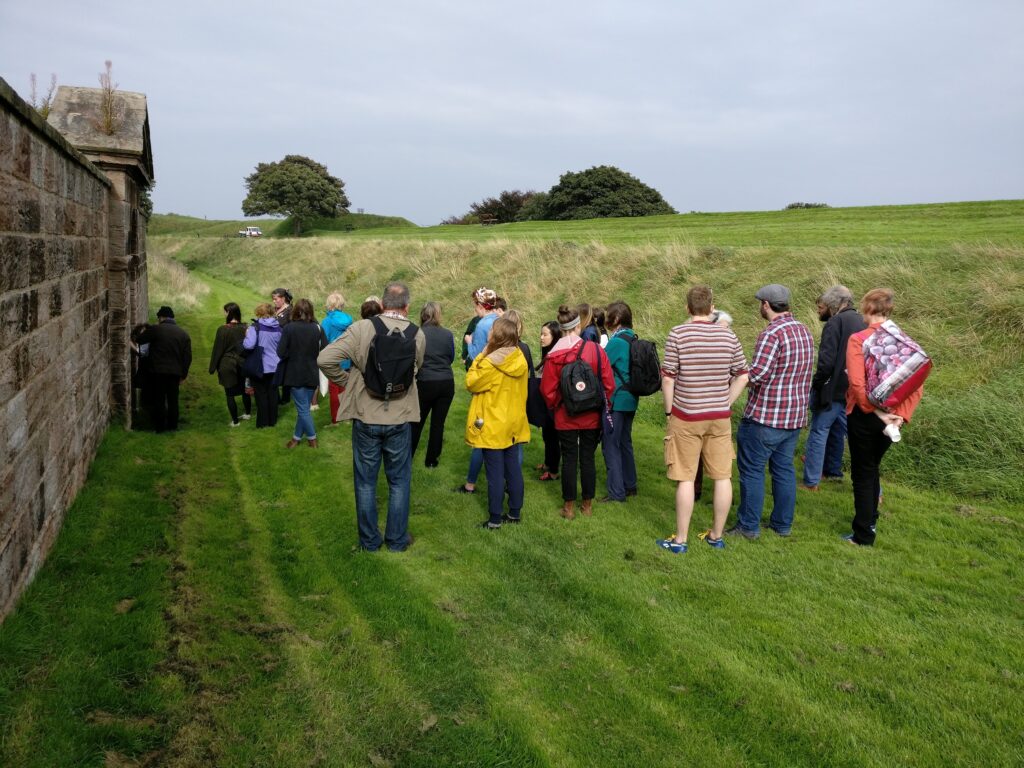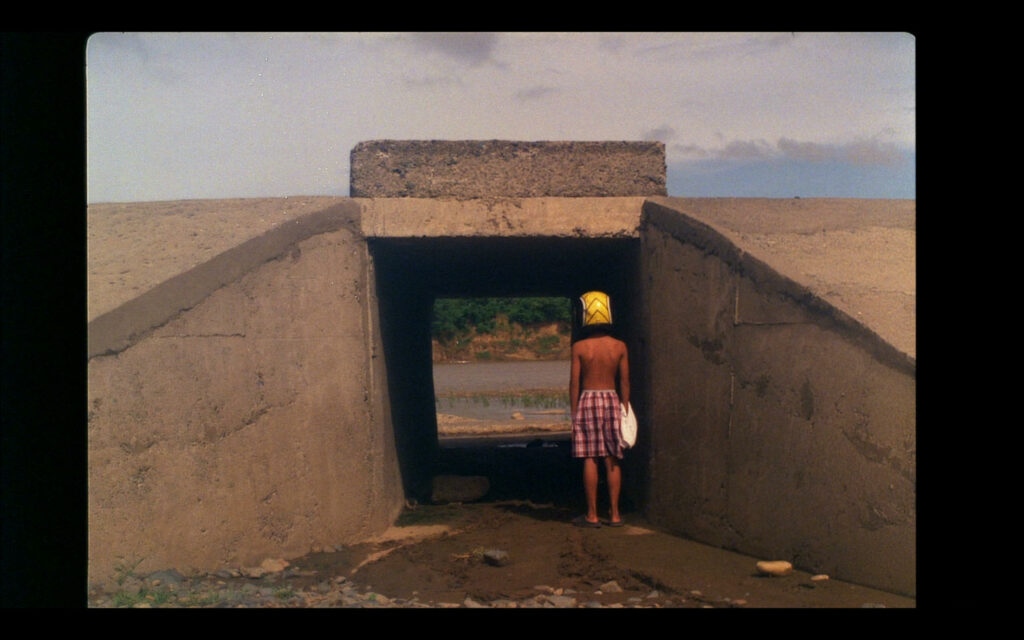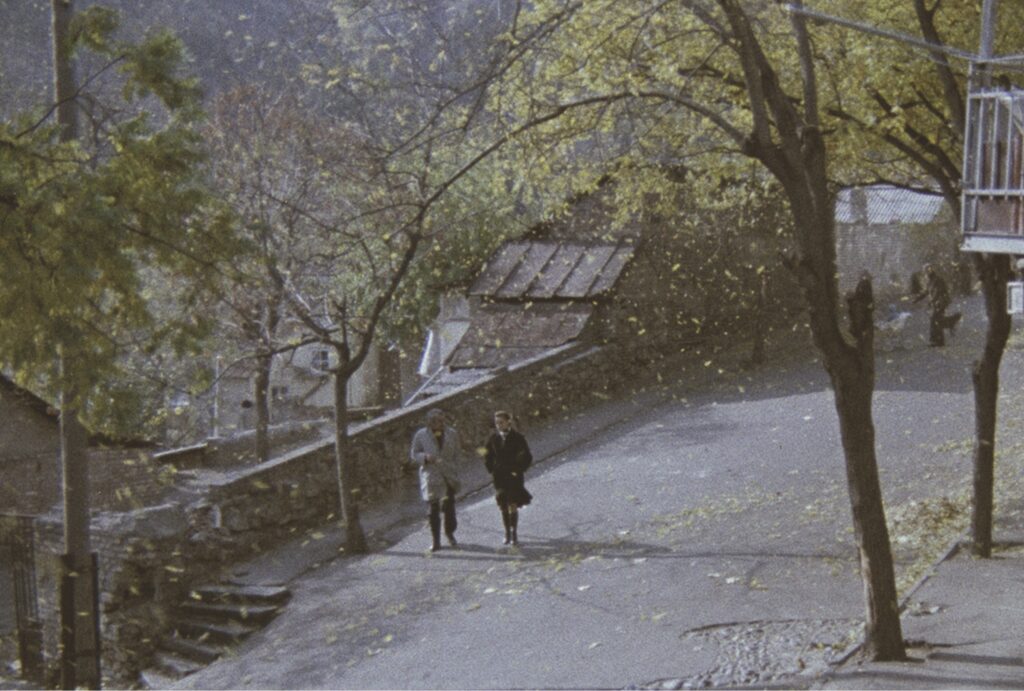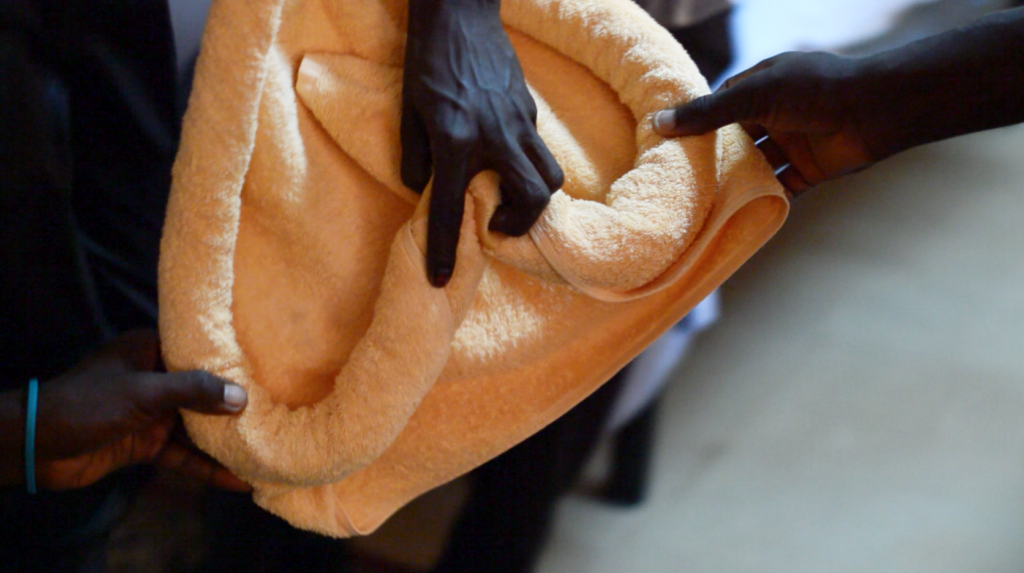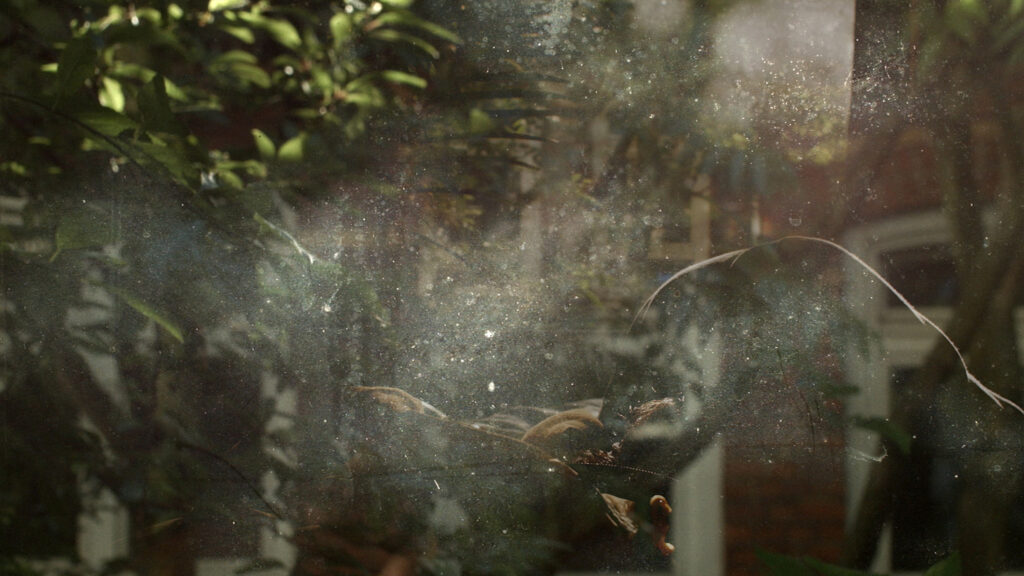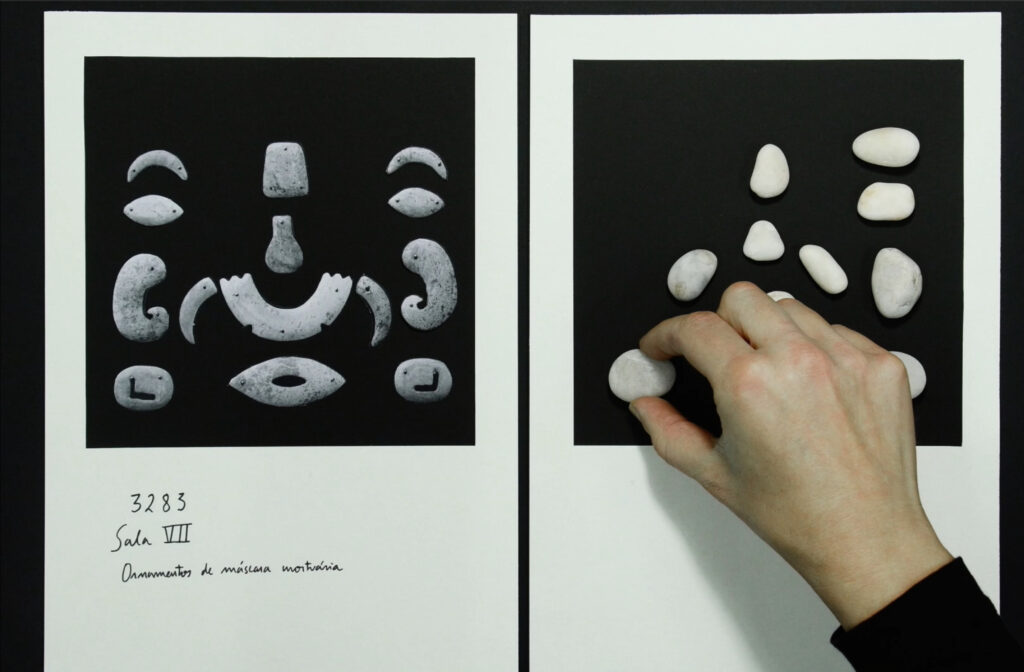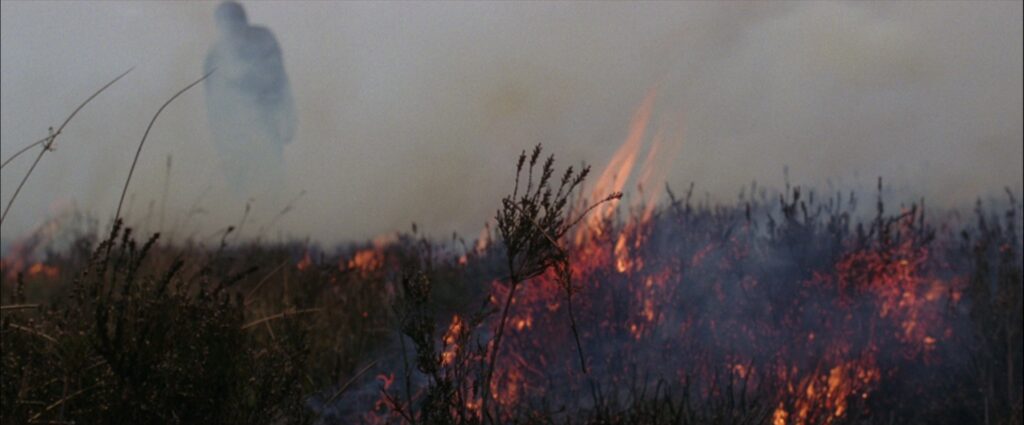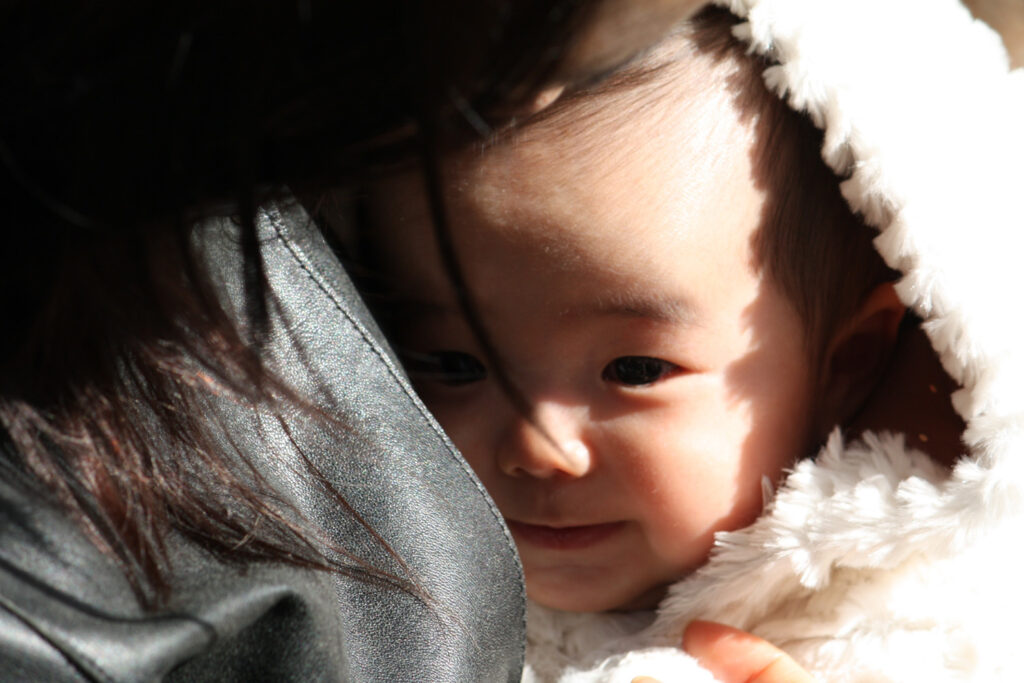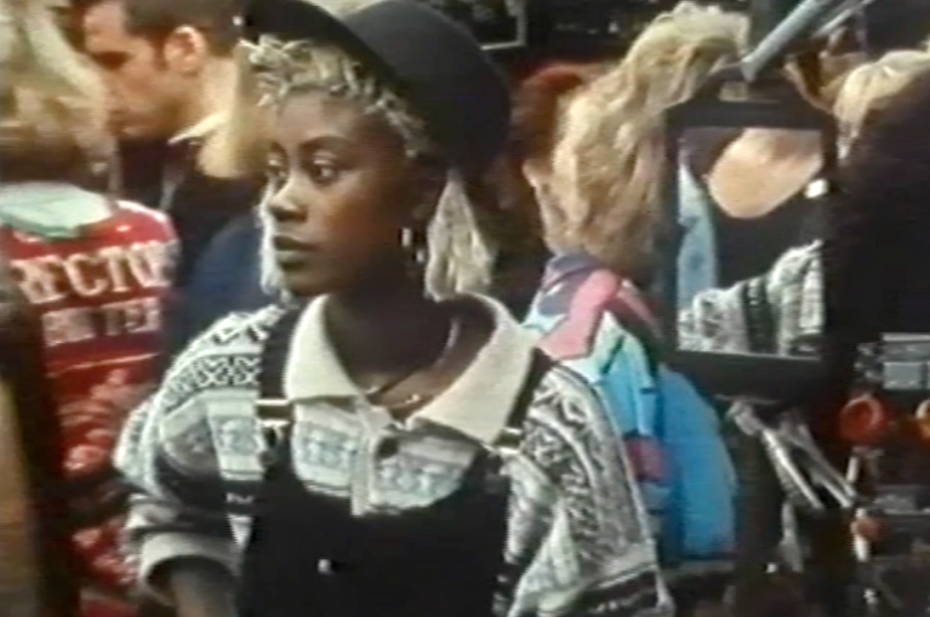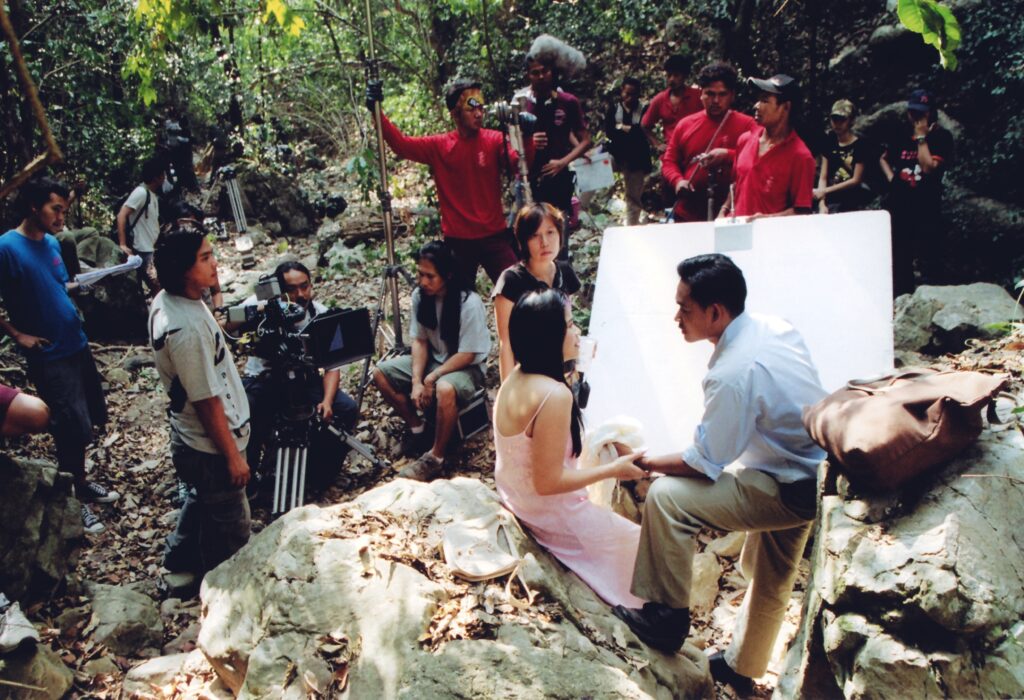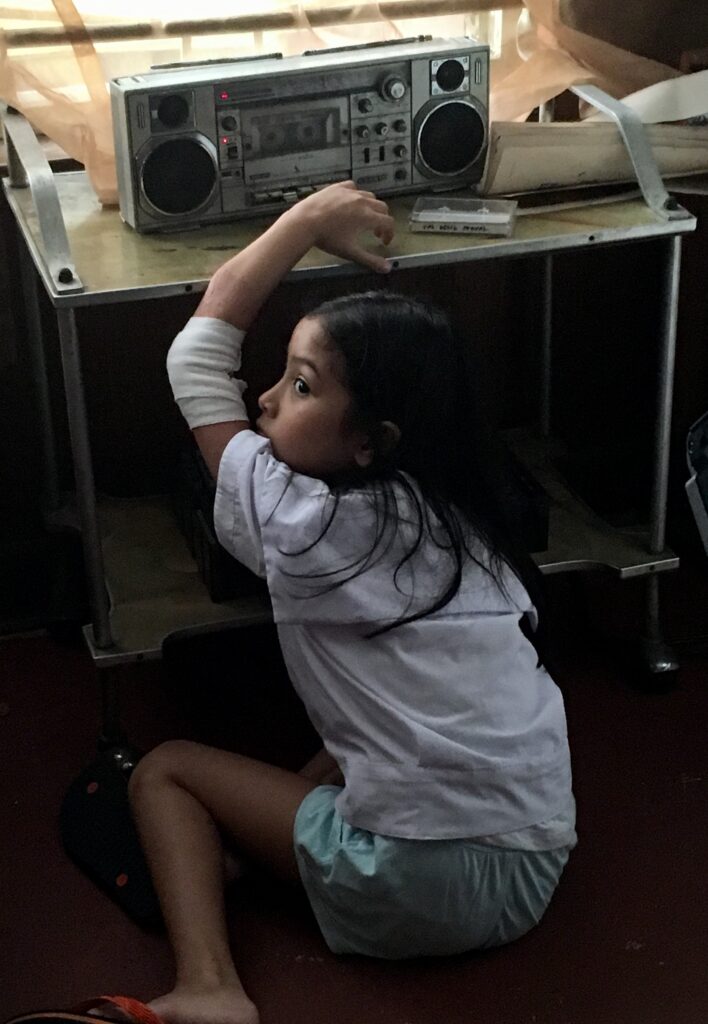Sophia Al-Maria discusses her diverse practice—particularly the series of moving image works shown in the ‘Temporal Vertigo’ retrospective screening and The Magical State exhibition in The Magazine—with BFMAF associate programmer Herb Shellenberger and 2018 seminar leader Taylor Le Melle. Working at the intersection of cinema and contemporary art, Al-Maria’s practice occupies a singular space within the field of artists’ moving image.
Run Time
Collect a free ticket from the Maltings Box Office, the starting point for an informal exhibitions walking tour (1.5 – 2 hours approx) with the Festival team.
Run Time
‘Lukas, in the middle of the film, the actress will pay a visit. You’ll fall in love with her. And you’ll understand your father. I’ll become your memory. I haven’t shown you the middle yet’. Thus begins John Torres’s latest dream of a documentary, a highly experimental, gloriously free-form coming-of-age story. Shortly after the arrival of a film crew that throws his tiny, usually quiet village into a frenzy of commotion, Lukas’s father, Mang Basilio, announces that he is a ‘tikbalang’, the half-horse, half-man of Filipino folklore. When Mang Basilio disappears, the awkward, baffled Lukas sets out on a journey of self-discovery that will include a ‘river of forgetting’, invisible voices and a hallucinatory blurring of reality and fantasy. Torres has already carved out an idiosyncratic niche for himself in the thriving world of documentary-fiction hybrids, and this is his most personal and expansive work to date. — Film Society of Lincoln Center
Q&A with filmmaker John Torres
Run Time
Some Interviews on Personal Matters is one of the first feminist films of Soviet cinema and comes to Berwick freshly restored by Arsenal Berlin. Lana Gogoberidze’s narrative follows Sofiko, a journalist who interviews a wide range of women about their lives, desires and domestic labour. Laying bare the connections between the private and political in almost documentary style, the film focuses on the struggle between Sofiko’s independence and her obligations towards her own family. A powerful performance by Sofiko Chiaureli—who viewers will recognize from her iconic role in Sergei Parajanov’s The Colour of Pomegranates—is at the center of what is a quite personal film for Lana Gogoberidze, one of three generations of Georgian women filmmakers from her mother Nutsa Gogoberidze (an associate of Eisenstein, Dovzhenko and Mikhail Kalatozov in the 1930s) to her daughter Salome Alexi.
Run Time
Translation, transformation and transition: the final 2018 Berwick New Cinema competition programme focuses on shifting perspectives, the tension between the real and the virtual, and the relationship between mental and physical landscapes.
Q&A with filmmakers Tako Taal & Callum Hill.
Run Time
Naomi Kawase is amongst the most renowned of contemporary Japanese filmmakers and Genpin is a sensually shot documentary revelation. In the heart of a dense Okazaki city forest, we follow Dr. Tadashi Yoshimura, midwives and expectant mothers during four seasons at a natural childbirth clinic. Employing centuries old practices that often run askew from contemporary medicine, Kawase’s tender film oscillates between the intimate moments of joy, pain and doubt in honouring this way of life.
The title Genpin recalls the words of the Chinese philosopher Lao Tzu: ‘The valley spirit never dies / It is named the mysterious woman (genpin).’ In the film, Yoshimura reflects on the relationship between childbirth and death, and observes—more as a human being than a doctor—that to deny death is to deny life. Life born into this world, life that ends at the moment of birth, life that ends before birth. Lives do not cease as a solitary life but are carried on by the species, and continue. Through the flux of the Japanese seasons, Naomi Kawase entered the circle of the women giving birth at the Yoshimura Clinic and the world of Dr. Yoshimura—who has spent 40 years on the path of natural childbirth—and wove the footage she shot with her own 16mm camera into this film.
Run Time
Artist, writer and curator Morgan Quaintance presents his new film Another Decade, alongside a programme of material that extends and details themes within it.
Another Decade combines archive and found footage from the 1990s with recently shot 16mm film and standard definition video. Starting from testimonies and statements made by artists and art historians during the 1994 INIVA conference ‘Towards a New Internationalism’, Another Decade ranges across diverse cultural territory, and is propelled by a sense that very little socio- cultural or institutional change has taken place in the United Kingdom since that time.
The dynamic tension explored in the work is between, on the one hand, art world actors speaking a truth to institutional power and, on the other, lived realities of London’s multiracial citizenry. Those who necessarily inhabit a centre of otherness.
These are positions that are drawn out in the selection of films that make up the accompanying programme. A suite of new works made by Quaintance—including a rumination on British Empire and the English countryside set to the words of Jimmie Durham, as well as a work examining the artist’s experiences growing up in South London—will be accompanied by several clips from a video pen pal exchange project facilitated by artist Russell Newell in 1994–95. Exchanged between kids in London and Los Angeles, the videos show participants talking about their neighbourhoods, giving tours of their schools, and discussings aspects of their culture like music, fashion and gangs.
While recent attention paid to the ’90s casts a largely apolitical view over the decade, this range of films seek to exhume evidence buried in the shallow grave of cultural amnesia of another, more political, more iconoclastic and more confrontational decade.
Run Time
A couple escape from their families and flee deep into the jungle. At nightfall, a song illustrates the innocence of their love and their search for happiness. Palme d’Or winning filmmaker Apitchatpong Weerasethakul invited fellow Thai filmmaker Pimpaka Towira to shoot a 35mm film in the forest while he observed the production though his digital camera. While Worldly Desires is dedicated to Weerasethakul’s memories of filmmaking in the jungle from 2001–05, it is also a story of forbidden love and desire, loaded with poetry, metaphor and mystery.
Run Time
Set in 1987, soon after the People Power Revolution which led to the fall of president Marcos, Nervous Translation follows eight-year-old Yael. A shy and uneasy girl, she listens endlessly to the cassette tapes recorded by her father, who has spent years away from home working in Saudi Arabia. When she hears an advertisement for a pen that will give her a ‘wonderful life’, she decides to spend all her savings on this miracle pen.
Yael’s world is small and tender—she likes to play cooking on her mini stove—but the real world comes knocking: a typhoon approaches the Philippines. Giving a voice to this quiet girl in a perceptive, playful film full of jump cuts, sensitive sound design, ’80s music and even an odd surrealist intermezzo, Seno empathetically captures the innocence and uncertainty of a child who doesn’t yet understand the world, although she is surrounded by it.
Introduction by filmmaker Shireen Seno
UK premiere of Nervous Translation presented jointly by BFMAF and Tate Modern
The film will be preceded by the 2018 Berwick New Cinema award presentation


